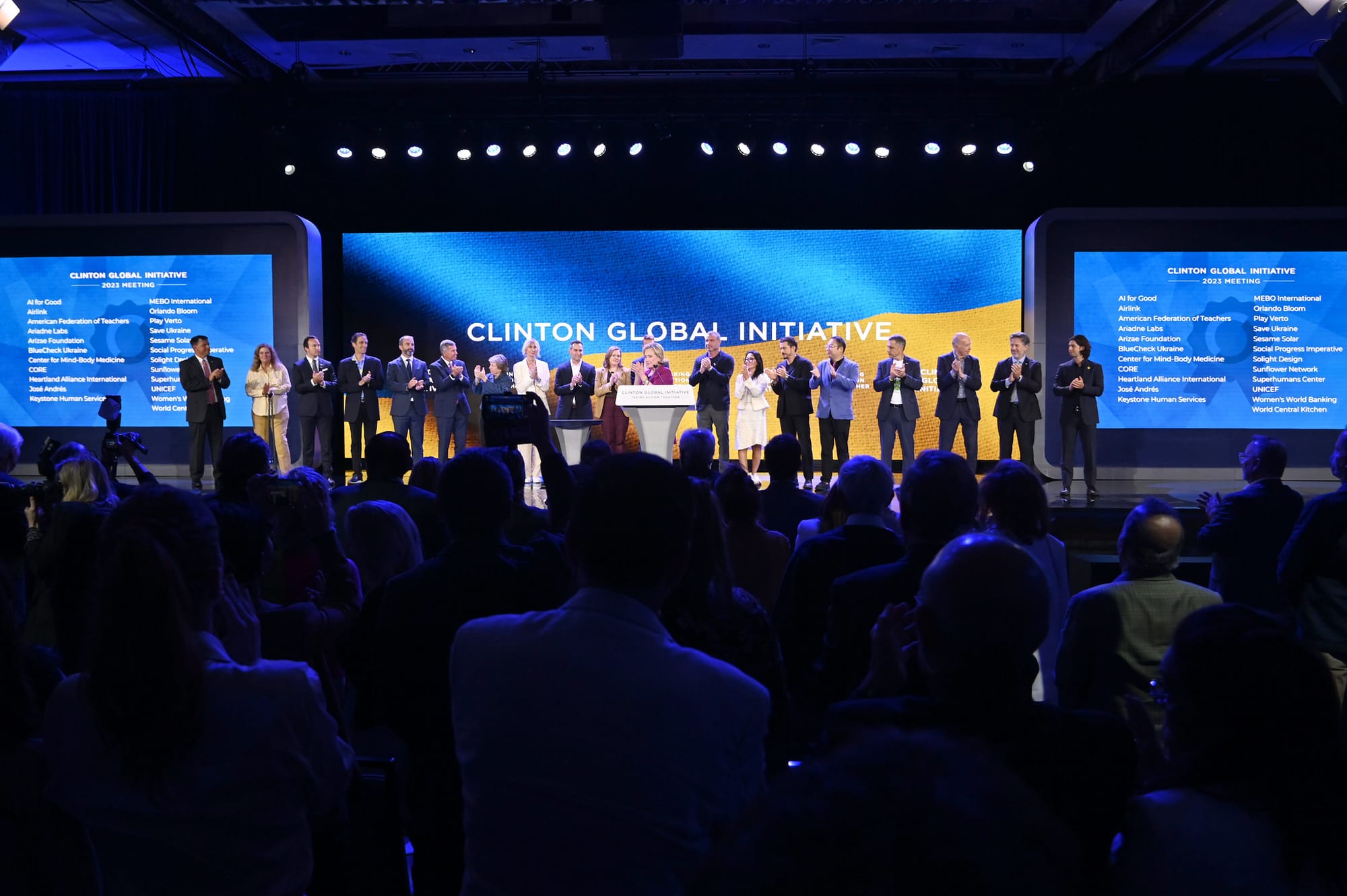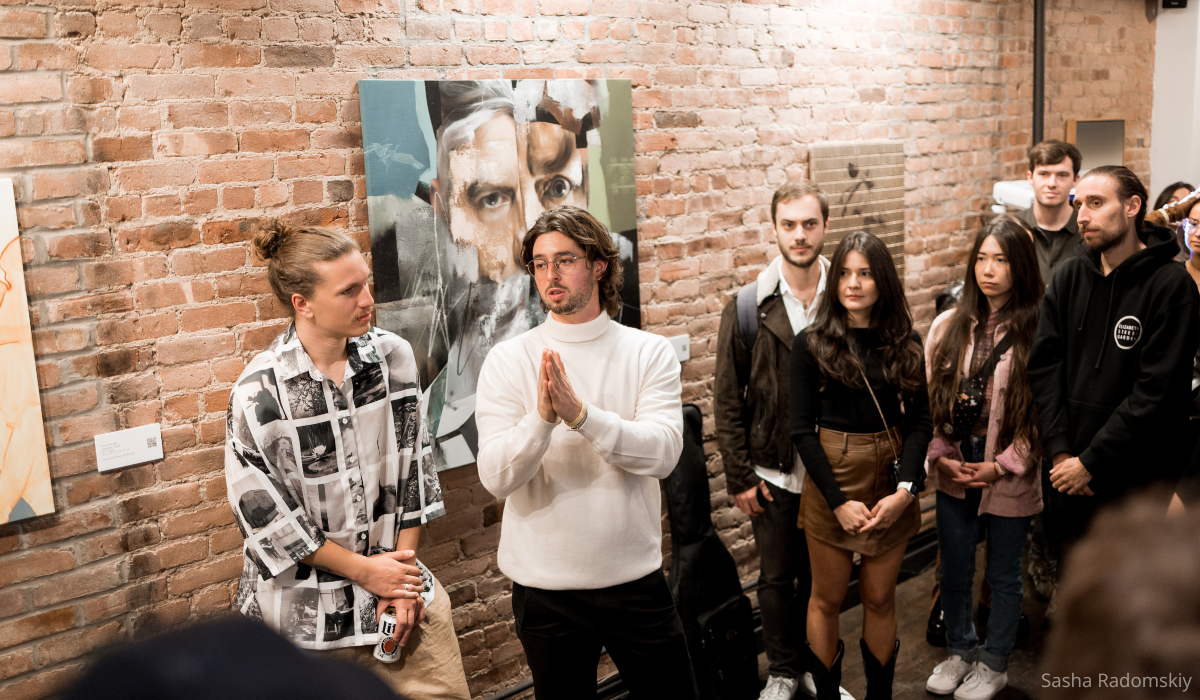Dustin J Ross Felt Helpless Watching Russia Invade Ukraine. Two Years Later, His Non-Profit Has Delivered More Than $4 Million in Aid
Dustin J Ross was living in Los Angeles and working in commercial real estate when Russia launched dozens of missiles and invaded Ukraine in February of 2022. Along with the world, he watched the news in horror thinking, How is this actually happening in the 21st century?
After days of obsessively reading the news, it became clear to Dustin that he could not stand by and merely watch what was unfolding and something clicked, I have to do something to help. I can't just sit here, read about it, and intellectualize the situation from the other side of the world. Feeling the needed to do more for the people of Ukraine than just make a donation to a global organization, Ross bought a ticket to Eastern Europe to see for himself.
A CONVERSATION WITH DUSTIN J ROSS
Tell us about that first trip to Eastern Europe?
Right before I left, I was connected to a Ukrainian couple living in Washington, D.C. who said, "Great, you'll be going to the border. We're gonna send you a bunch of supplies. Stay put." Soon after, hundreds of tourniquets—which are traumatic medical bandages used to save a life when someone is otherwise going to bleed out and die—show up at my door from Amazon. I packed these tourniquets into a duffel bag and flew to Eastern Europe. I then drove from the airport all the way up to the Ukraine-Romania border where I handed them off for someone to deliver into the country.
The very next day I got a video of the tourniquets being unloaded in the beleaguered eastern city of Kharkiv. When I saw the duffel bag—with my checked luggage tags still attached—all the way on the front lines just a day after I dropped it off, I realized the opportunity here to make a difference. Each one of those tourniquets is a lifesaver. When you see an opportunity to do something, how do you then turn around and walk away?
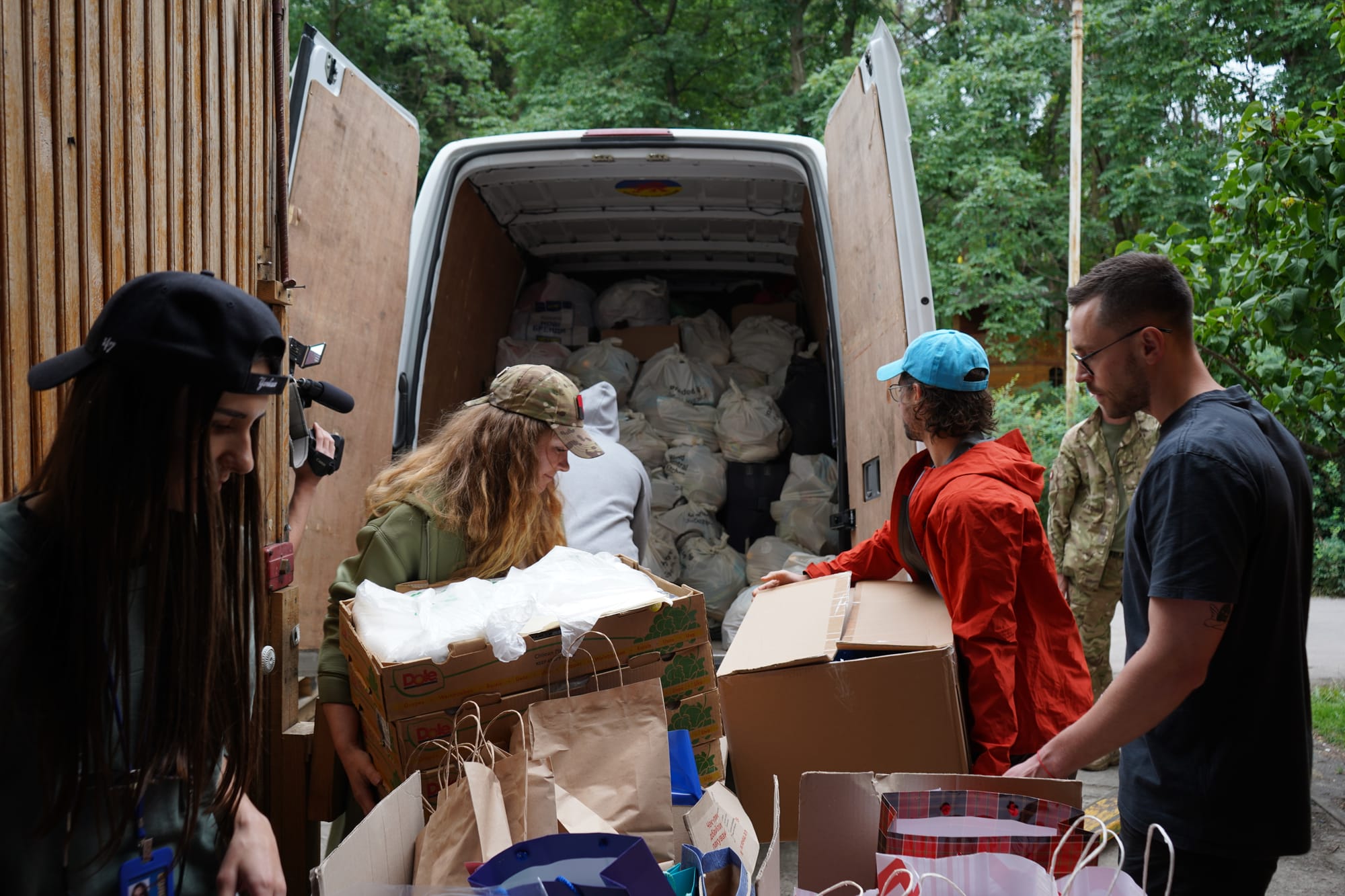
What was your experience founding Sunflower Network and getting others involved?
I never planned on creating an organization; I just wanted to help. Before I left Los Angeles, I reached out to over 200 different organizations asking them how I could help. They all gave me the same answer: Give us money and go away, but I didn't have the money to do that.
While in Ukraine, I was spending what I could to buy supplies from Poland and bringing them to Ukraine. I posted on my Instagram, “Any money you send me I will use to buy supplies.” I went to sleep and woke up with $6,000 in my Venmo. All of a sudden people were sending more and more money and they were asking, "Can I get a tax deduction?" and I thought Why not? Next thing you know we have Sunflower Network.
I learned one really important thing about life and about the world through this experience: Our generation can get 17 different kinds of coffee delivered to us—we have everything we could ever want, and we can have it immediately—but we're not happy because we lack community and we lack purpose. When you give people the avenue to engage in something purposeful, and then see the community that forms around that, there’s an incredible sense of fulfillment. That's also something I found in Ukraine. You ask anyone what was the first thing that went through their minds when they heard the bombs falling on February 24, 2022 and they answer, How am I gonna get my mom to safety? Where is my girlfriend? Nobody thought of themselves; everyone asked, How do I help another person? In Ukraine you see people come together in service of the whole and I think that’s really important to the human experience.
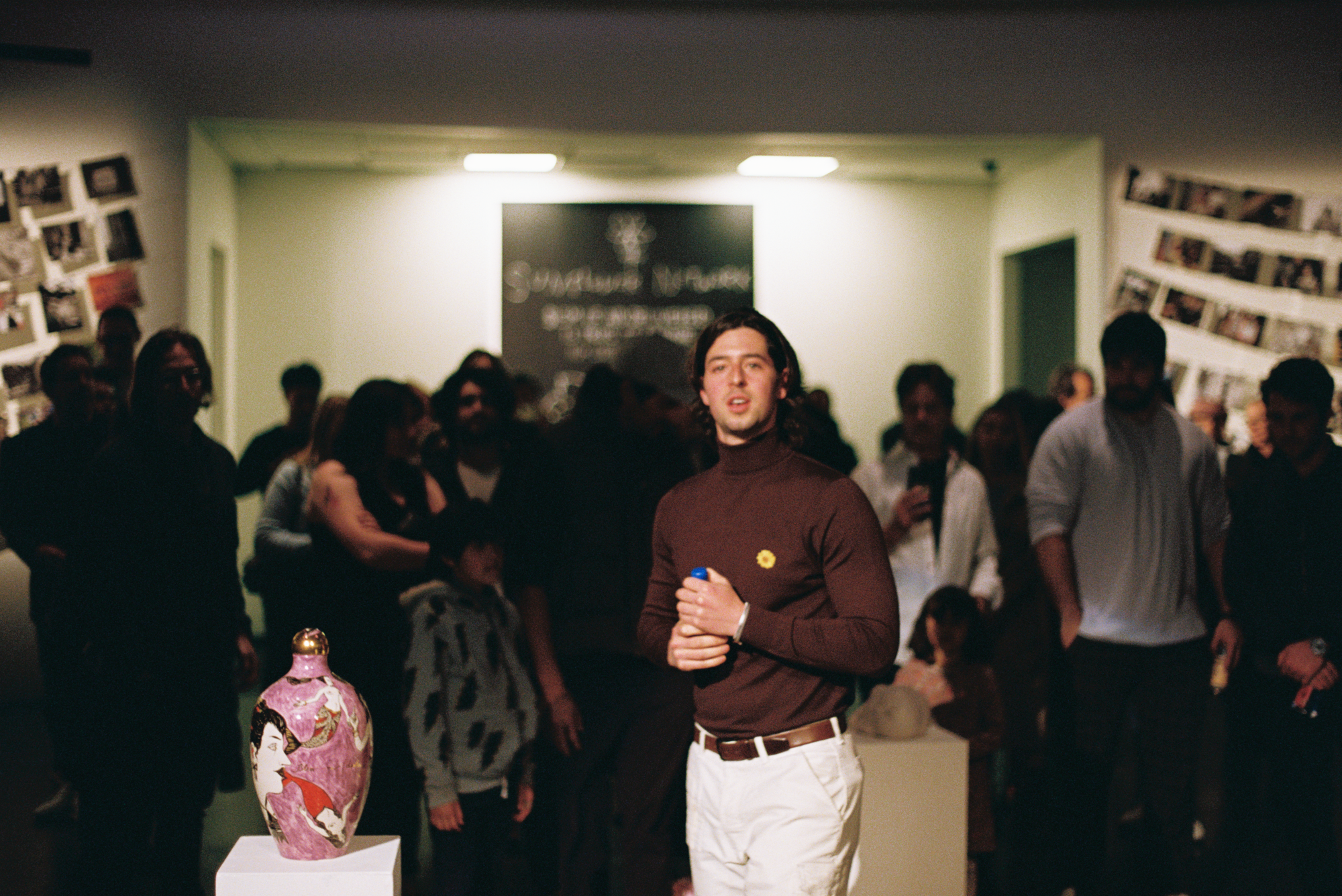
Did you have a prior connection to Ukraine?
No, I didn't. I'll never forget one of my first trips, I was outside Kyiv in a Russian-occupied town called Bucha. I'm Ashkenazi Jewish and was always told I was Russian and Polish. I called my grandpa, "Pops, where in Russia are we from?" he said Odessa, but Odessa isn't in Russia; it's in Ukraine. So, there's a beautiful serendipity to my story and work in Ukraine. I had no connection, and now I've been seven times, and I'm getting ready to go back for an eighth.
What is the significance of Ukrainian art to the Sunflower Network?
On my third trip to Ukraine, a teammate and I visited a coffee shop in Kyiv that had these really cool posters for sale, and we bought a bunch for ourselves. What we found was this amazing cultural dynamism in Ukraine—a celebration of Ukrainian identity expressed through art. That's when we decided to fly a bunch of the art back and set up a pop-up exhibition in New York City. We took an old, abandoned hair salon on 13th and 1st and turned it into an art gallery. That first exhibition raised a few hundred thousand dollars, and we used it to purchase generators that we sent back to Ukraine. We scaled, and have since hosted a series of different art galleries, fashion shows, and retail concept stores in New York, Los Angeles, and Aspen.
Art is not only a great way to celebrate Ukrainian identity and culture during this time, but it's a great way to raise money to make real impact.
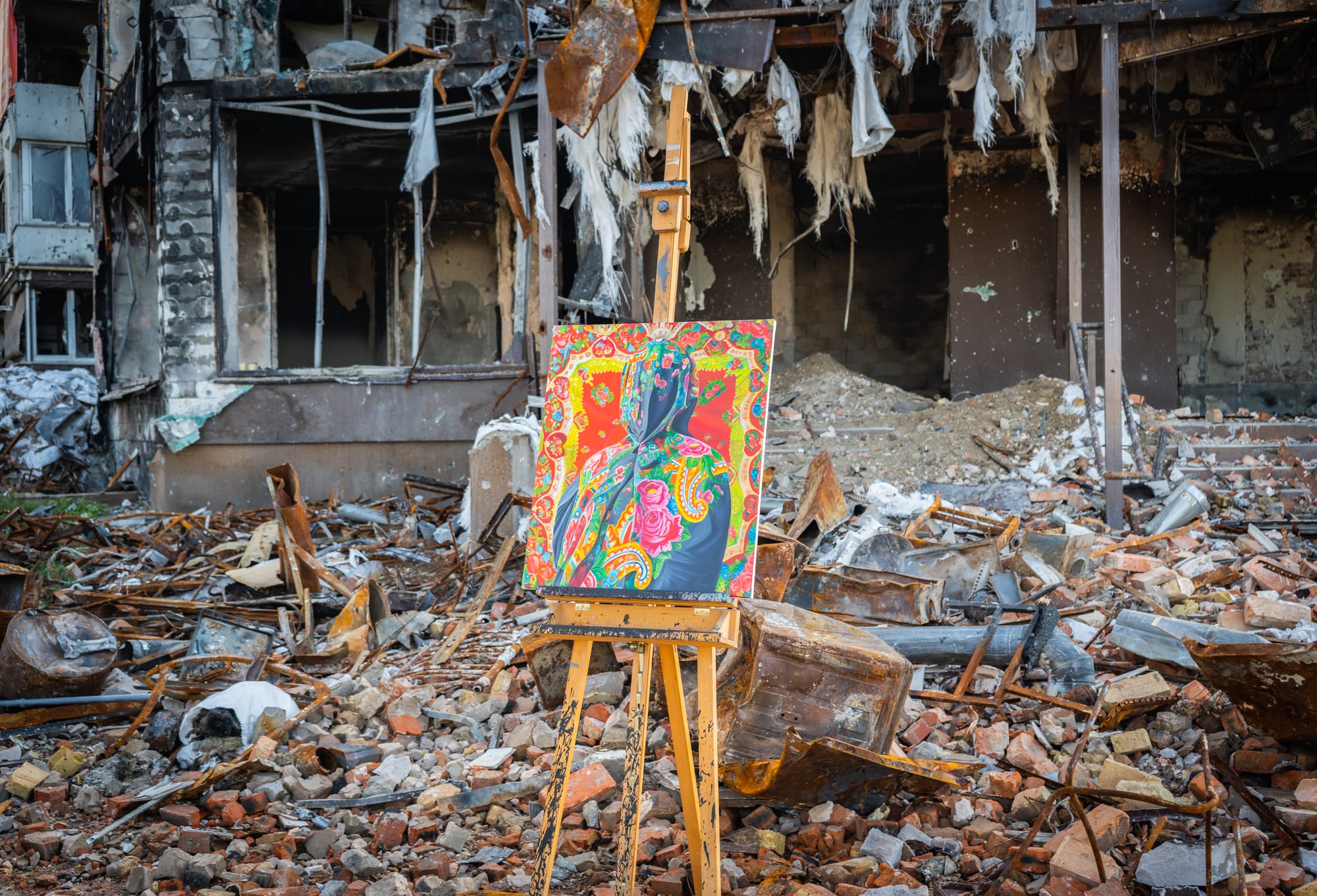
What's the meaning behind the name Sunflower Network?
The most valuable thing we've done is built relationships and community. On the aid delivery side, we were the node between people around the world who wanted to help and the local organizations doing great work on the ground. We've delivered $4 million of aid to Ukraine and we're now launching a program to rebuild Ukraine's healthcare system—everything we do is about empowering our local partners. So I wanted to call it something ‘network’ and the sunflower is Ukraine’s national flower.
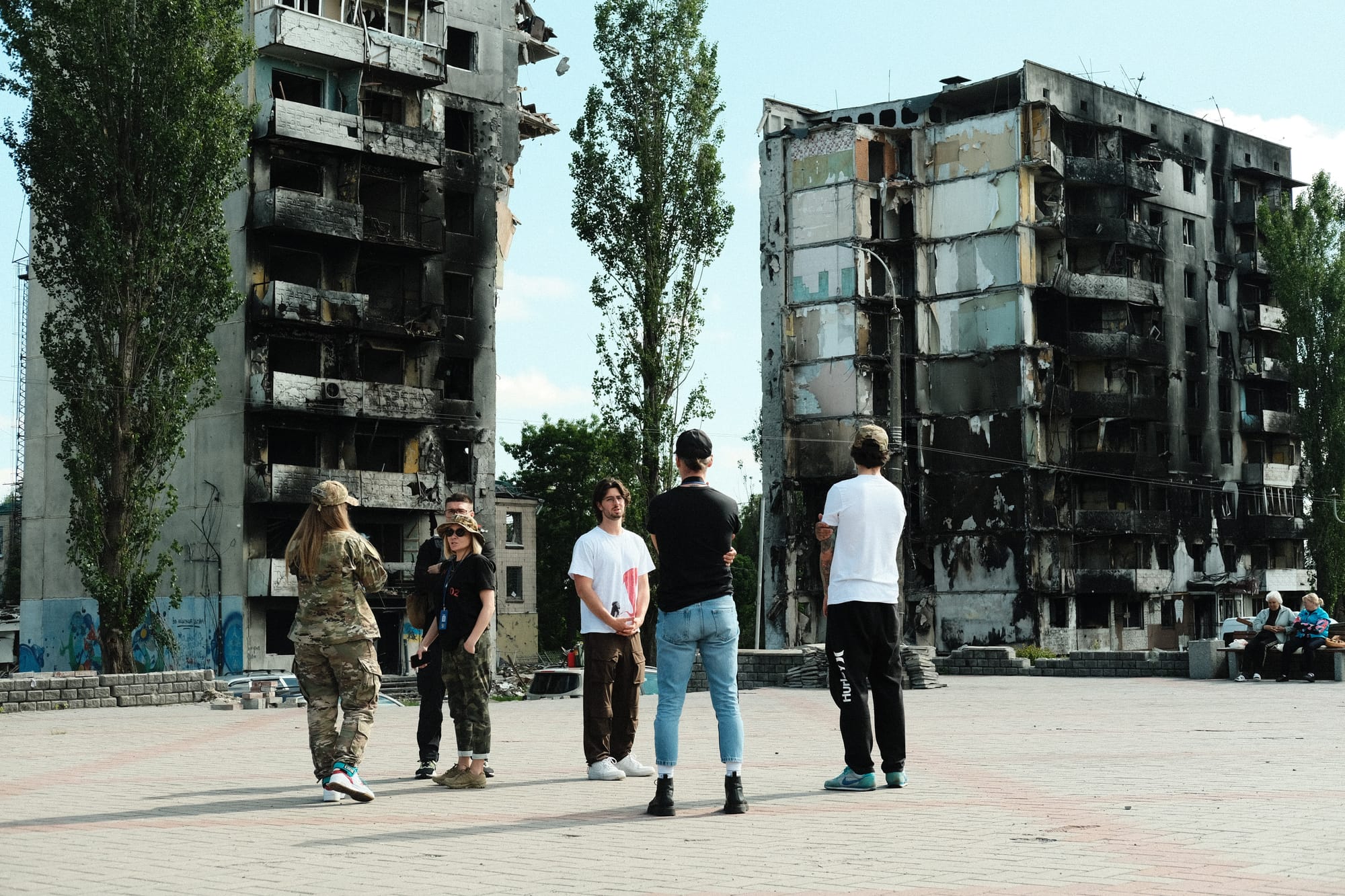
What have the last two years been like through the eyes of Sunflower Network?
At the very beginning of the war, the whole supply chain collapsed. We were hearing from our local partners that they needed food, water, toilet paper—there was almost nothing getting into the country and they needed basic necessities. Then the vanguard shifted from needing things now, to needing sustainable impact—a home to come back to, the ability to care for their people, health care, a reason to believe. That’s where we've transitioned from just focusing on delivering aid, to now focusing on creating a real, durable, and sustainable impact for generations to come.
I’ll never forget one of our local partners who has two young twins and whenever I see her the twins are always running around, but on one trip, one of the twins wasn't there. She told me that he was okay but he was at the hospital in Lviv, an hour and a half away, because he had a concussion. I asked why he was in a hospital an hour and a half away and she asked if I wanted to see what their hospital looks like. She took me to the children's wing of the local hospital which lives on the fourth floor of a corroded, dilapidated, 100-year-old building —no insulation, no elevators. What I saw was something I'll never forget, horrifying, but I also saw dedicated doctors and nurses throwing blankets on patients and carrying them up and down stairs and in between buildings. It didn’t make any sense. If someone is sending their kid an hour and a half away for a concussion—think if it was something more serious, that person's not going to survive.
That's when we realized the opportunity to create a modern facility in Brody that empowers them to move towards a patient-centered care model and operate with so much more efficiency. We're building a hospital that's going to serve 120,000 people and we're doing so by retaining local, on the ground, Ukrainian-based consultants, and then partnering them with best in class, global expertise. We're doing all of that in order to build what's going to be a 5,000 square foot multidisciplinary general hospital.
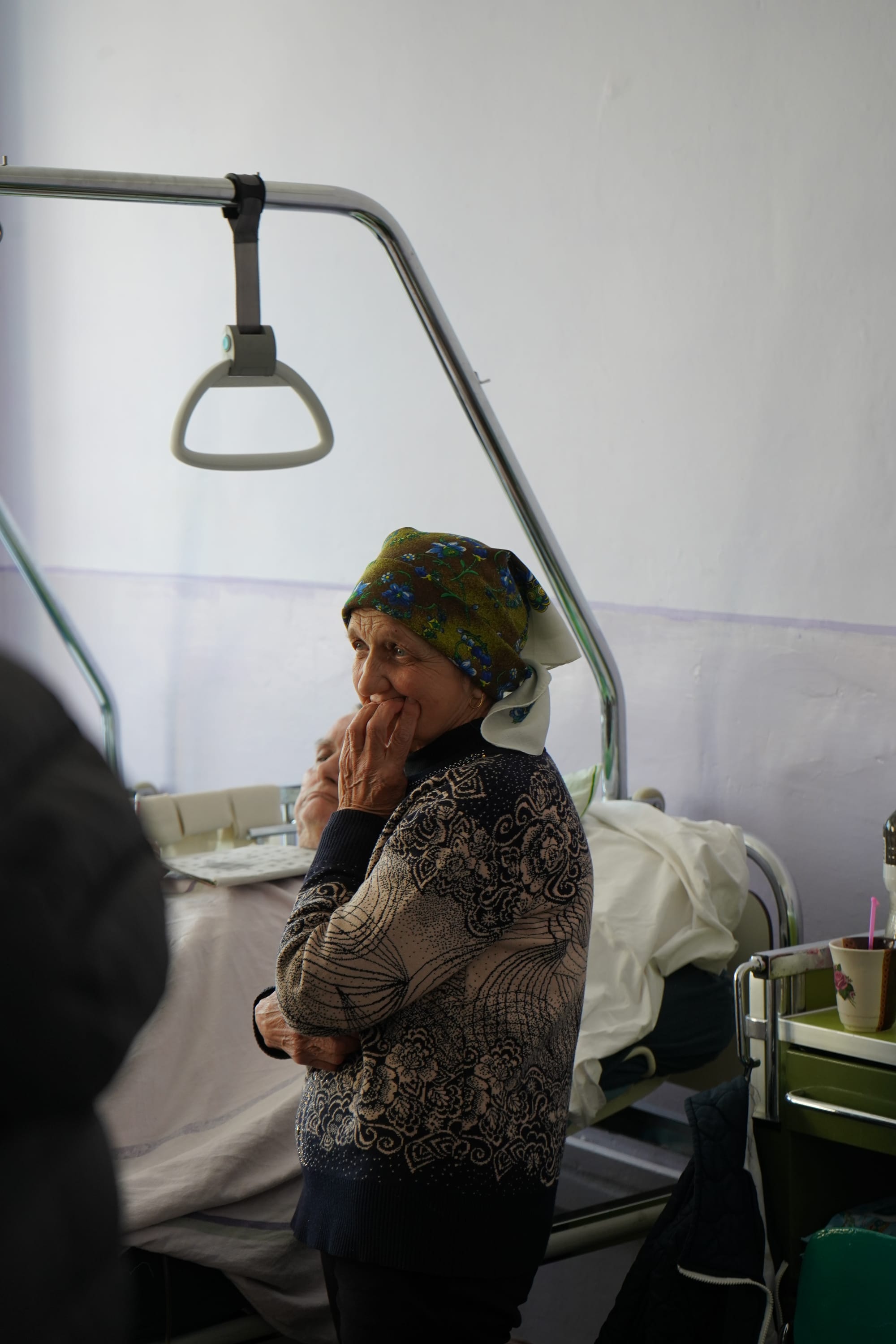
This is a generational-type impact that we are in a position to make happen right now. The only thing standing in the way of that is raising money. If anyone wants to make a difference and actually impact 120,000 lives, that's where they can help—donating, raising money, or connecting us with people who can raise money is the need right now.
What do you want people to know about Ukraine—the people, the country, their future?
It's the capability of the Ukrainian people that really strikes me. What Ukraine needs is to be empowered. Ukrainian doctors, Ukrainian soldiers, Ukrainian businesspeople—they're all so dedicated and so courageous. If we give them what they need to succeed, they will succeed. If we can give Ukrainians hope, inspiration, and empower them—they're ready to do the rest. They're ready to do the hard work.
I think our generation is so quick to activism yet so slow to action—that's what Sunflower Network is really about. It's about actually doing things that impact lives. If we all can become a little less headline ‘clickbaity’ and a little more empathic, a little more detail oriented; and we all can start to advocate not just against things, but actually for things; and we can throw our weight not just against the things, but actually behind things—that is how we can create an incredible impact. Again, we have a young team, but we also have unbelievable, globally-recognized experts, partners, and professionals that are helping us because they see that we are not just activists, but action-oriented.
Click here to support Sunflower Network's mission.
Sunflower Network is a registered 501(c)(3) non-profit organization focused on providing direct and essential aid to Ukrainians in need. In September 2023, Sunflower Network announced their commitment to building a hospital in Ukraine as a part of the Clinton Global Initiative’s newly formed Ukraine Action Network. Keep up with their work on Instagram.
